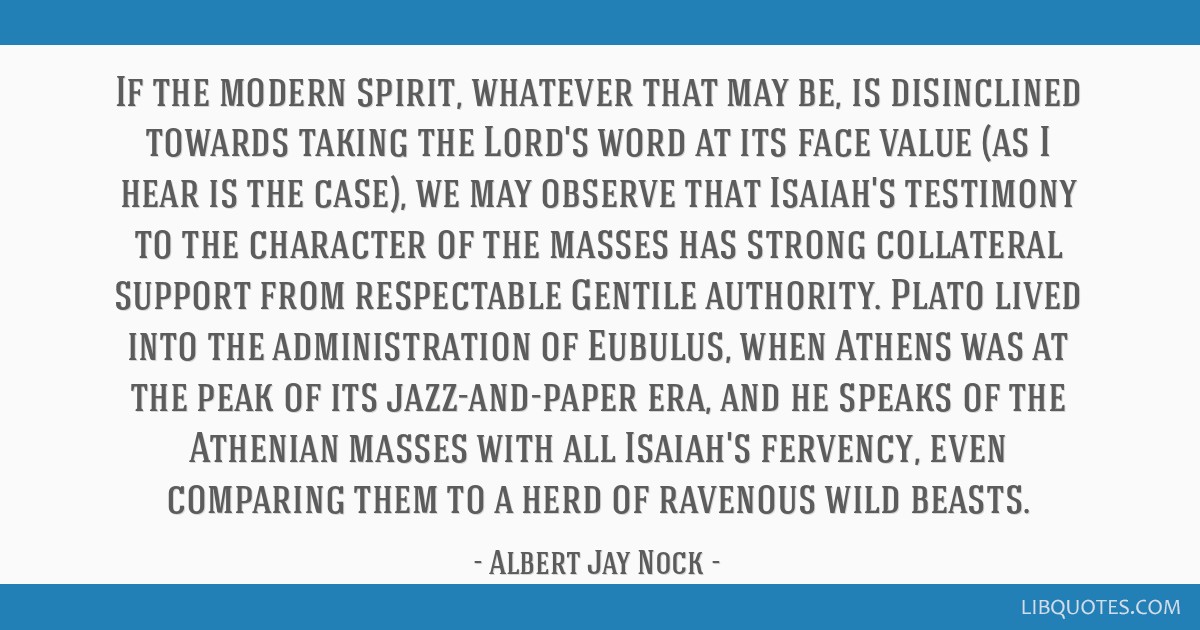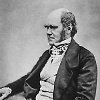If the modern spirit, whatever that may be, is disinclined towards taking the Lord's word at its face value (as I hear is the case), we may observe that Isaiah's testimony to the character of the masses has strong collateral support from respectable Gentile authority. Plato lived into the administration of Eubulus, when Athens was at the peak of its jazz-and-paper era, and he speaks of the Athenian masses with all Isaiah's fervency, even comparing them to a herd of ravenous wild beasts.
II - Isaiah's Job (1936)























